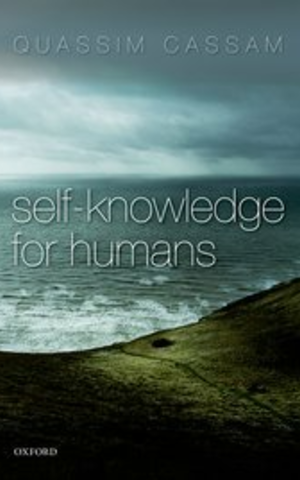
Human beings are not model epistemic citizens. Our reasoning can be careless and uncritical, and our beliefs, desires, and other attitudes aren't always as they ought rationally to...
Show More
Number of Pages: 272
ISBN: 0199657572
ISBN-13: 9780199657575
Mentions
See All
Phil Treagus-Evans @philtreagus
·
Feb 4, 2018
- Curated in THE BEST MODERN PHILOSOPHY BOOKS
My first choice is Quassim Cassam, Self-Knowledge for Humans: A lucid, revealing and engaging account of the many non-epistemic and non-rational factors that cloud our ability to know ourselves (and indeed others, and various states of affairs). Cassam argues persuasively that we should start with the human predicament, not an unrealistic ideal of homo philosophicus.